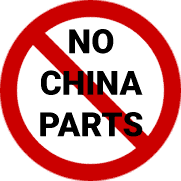Blog
What Is Aviation Shroud And It's Uses?
What Is Aviation Shroud And It's Uses?
If you’re in the aviation industry, you may have heard the term “shroud.” The term alone refers to an object that obscures something from view. In the aeronautical industry, there are different types of shrouds that can be utilized for different functions, such as exhaust shrouds for carbon heat and cabin heat in light planes. But in this piece, we’ll discuss briefly the definition and functions of the most commonly used shroud in aircraft.
A shroud is often used as the informal name of certain aircraft parts, aircraft shroud parts. An access panel, for instance, is sometimes referred to as a shroud by pilots. An access panel’s main function is to work as the removable section of an enclosed structure, yet it is referred to as a shroud because of the way that it hides debris and other objects from view.
Head shroud is another term used frequently in aviation. An example of how a heat shroud is applied can be with an electric actuator. The heat shroud can be used around the actuator or the duct to create a separation between them and prevent the actuator from burning up. Other examples include a shroud panel over a mass of wiring and plumbing on an engine to protect it from heat, fluids, water, to smooth internal airflow, or just for looks.
A shroud on the outside of an airplane whose only function is to manage the airflow for drag reduction is a fairing. In engineering terms, a shroud is usually a non-structural protective panel, that isn't a fairing or access panel, that "hides" something either from view, from a heat source, some sort of internal flow disturbance, or some potential contaminating substance.
At ASAP Part Services, owned and operated by ASAP Semiconductor, we can help you find all the unique parts for the aerospace, civil aviation, and defense industries. We’re always available and ready to help you find all the parts and equipment you need, 24/7-365. For a quick and competitive quote, email us at sales@asap-partservices.com or call us at +1-714-705-4780.
-
henry fayol
-
Posted on December 18, 2019
- aviation

